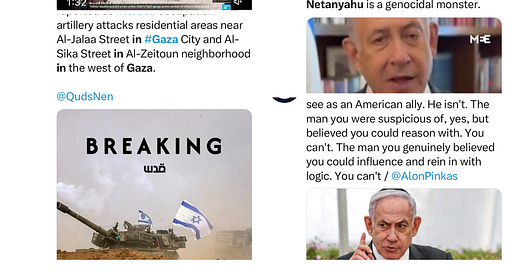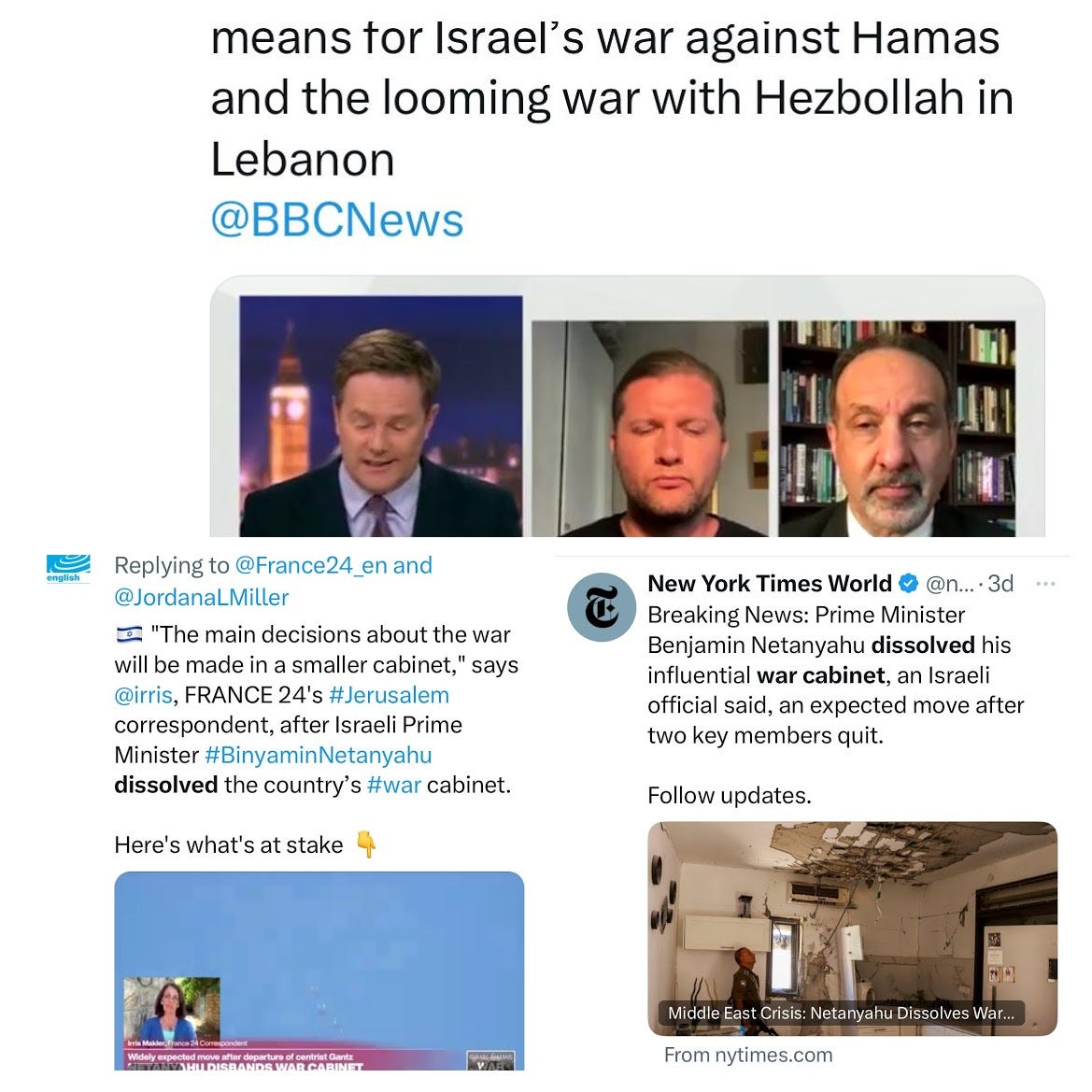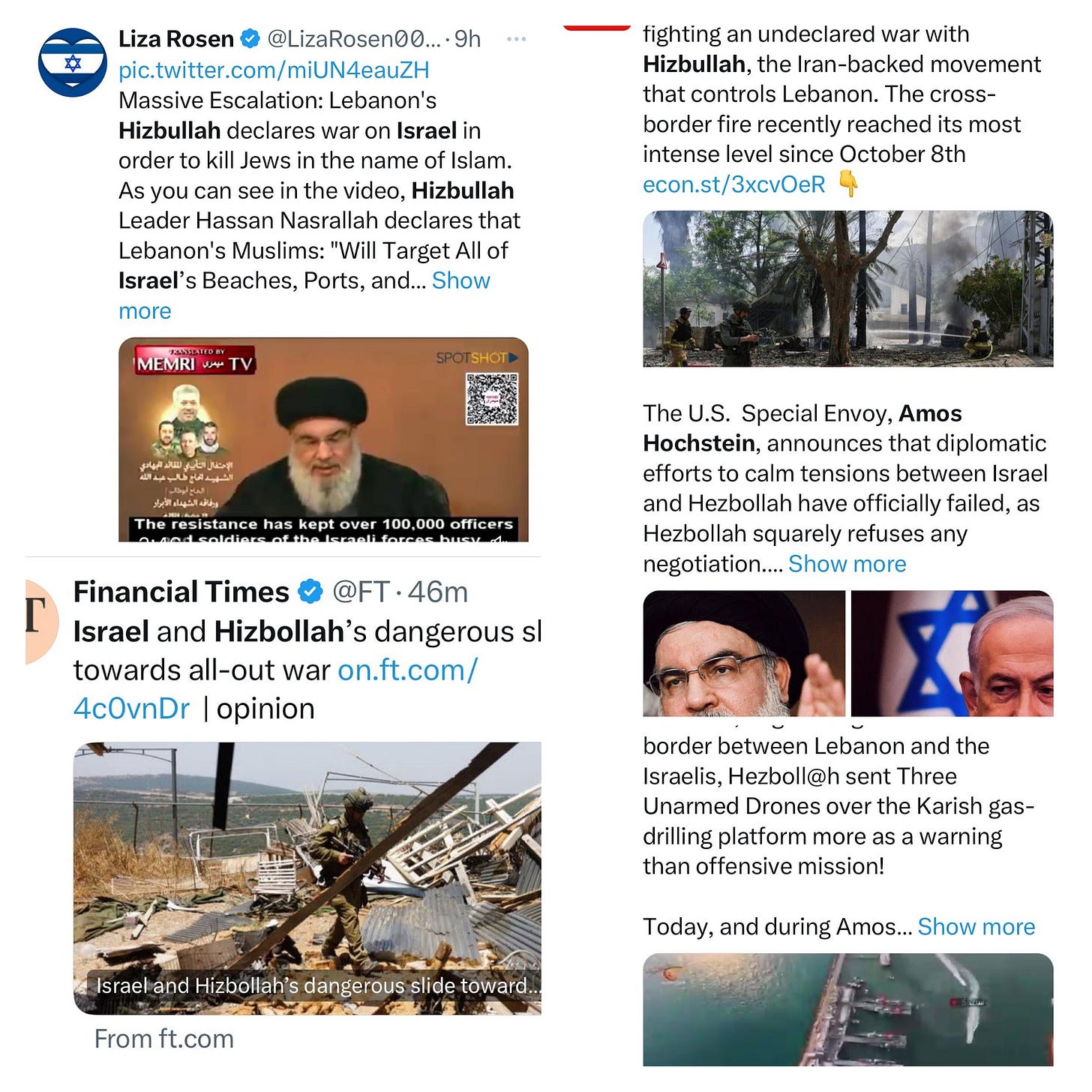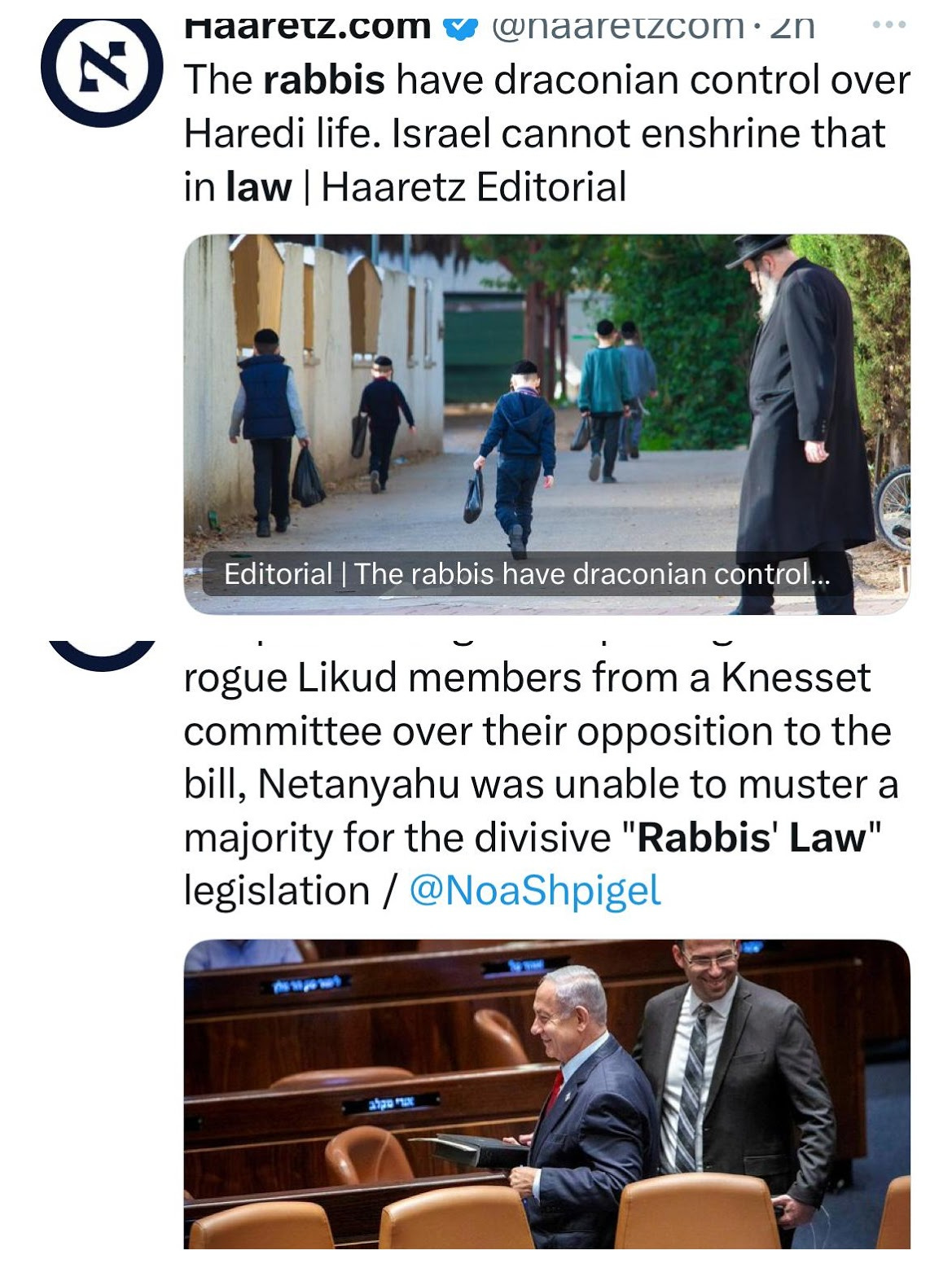Israel at War - Day 259
1. Fighting in Gaza Paused During Daytime, PM Netanyahu Angers US Administration
Earlier this week, the IDF chief announced that Israel will pause operations during the day in certain parts of the southern Gaza strip, to allow the transfer of humanitarian aid into Gaza. Aid workers in Gaza voiced cautious hope that the new policy will facilitate the supply of much-needed aid. The statement caused an uproar among far-right members of the government, while PM Netanyahu claimed that he was unaware of this new policy.
According to the UN Environment Program, it is estimated that the war in Gaza has destroyed more than 60 percent of water infrastructure, and created some 40 million tons of building debris, which contains toxic materials.
Despite the pause in daytime fighting in certain parts in the southern Gaza strip, fighting continues in other parts and the number of casualties continues to rise, on both sides. According to the Hamas-controlled Health Ministry in Gaza, at least 37,396 Palestinians have been killed and 85,523 wounded since the start of the war. According to Israeli sources, 1,574 civilians, soldiers, and policemen were killed on October 7th and in the war that ensued. 116 hostages, dead and alive, are still held in Hamas captivity.
Also, this week, the White House canceled an important strategic meeting concerning Iran's nuclear capacities with senior Israeli officials. This, after PM Netanyahu released a video, in English, publicly criticizing the Biden administration and pointing a finger at the U.S. for delaying arms shipments to Israel, which he claimed was "inconceivable."
Biden's special Mideast envoy, Amos Hochstein, informed PM Netanyahu that the video angered senior US administration officials and could possibly undermine efforts to prevent a war in Lebanon. A senior Israeli official told an Israeli media outlet, Haaretz, that the video hampered weeks of coordination efforts, and that Netanyahu’s response to the delay in arms shipments was perceived as "ungratefulness."
2. Israeli War Cabinet Dissolved
As a result of the departure of one of PM Netanyahu’s political partners , Benny Gantz, and his party, from the coalition, the war cabinet was dissolved.
The war cabinet was established shortly after October 7th, when Benny Gantz and his political party, National Unity, joined PM Netanyahu’s government to strengthen their ability to manage the war in Gaza. The war cabinet was the forum that enabled discussions on strategy, plans, outcomes, foreign policy impacts, and other urgent national matters. It did not include the minister of homeland security, Itamar Ben Gvir, or the head of Religious Zionists, finance minister Betzalel Smotritch. They were excluded from the decision-making forum because of their extreme right-wing agenda and because Ben Gvir cannot keep top secret intelligence to himself.
When Gantz left, Ben Gvir demanded to be included in the war cabinet, but PM Netanyahu accused him of leaking top secret intelligence.
The American administration is concerned about the impact of the elimination of the war cabinet. That was the forum that enabled the US to be more involved and more informed on the war, its prospects, and future plans. PM Netanyahu preferred to establish a small consulting forum that includes former Israeli ambassador to the US Ron Dermer, head of the National Security Council, and head of the Sephardic religious party Shas, Arye Deri, who was banned from holding a ministerial position by the Supreme Court because he was convicted of corruption.
3. Intensive Effort to Avoid an Overall War Between Israel and Hizbollah
President Biden’s special envoy to the middle east, Amos Hochstein, is making another effort to put Israel, Hizbollah and Lebanon (where Hizbollah is part of the Lebanese political system) on a track to reach an agreement and calm down the already heated violent conflict on the northern border of Israel between Israeli security forces and Hizbollah units.
Israel and Hizbollah are fast moving towards an overall regional war. President Biden wants to make every effort to avoid such a war, especially now, when he has to manage a presidential campaign. On the other hand, the situation between Israel and Hizbollah is fast deteriorating, and many in Israel believe there is no alternative to a war to resolve the current situation and enable the tens of thousands of residents to return to their communities on the border with Lebanon. Almost 100,000 people are displaced since October 7th, and are unable to return to their homes, because Hizbollah is targeting those communities with rocket and missile fire, causing extensive damage.
Earlier this week Hizbollah distributed a short video depicting some key security targets in northern Israel, which were photographed by a hostile drone that invaded Israeli territory to collect data. That video was taken to demonstrate that Israel cannot completely block its aerial territory from hostile incursions.
4. Cracks in PM Netanyahu’s Coalition:
PM Netanyahu’s coalition is going through political turmoil, that may lead to its dissolution. Earlier this week PM Netanyahu’s closest ally, Aryeh Deri, head of Shas (Sephardic orthodox party) tried to introduce a bill that will strengthen the power of the political institutions and political power on the nominations and funding of local Rabbis. The local rabbis are official town and neighborhood rabbis whose salary is paid by the local governments. If that law passes, it will enable the nomination of dozens of Rabbis all over the county. This will put an enormous burden on the state budget and increase the political power of the party, Shas. It is important to say in this context that in Israel there is no separation between State and Religion. Therefore not only does religion have legal authority over some aspects of the citizens personal lives (marriages, divorces, burials etc.), but taxpayer money finances all the Rabbinical institutions and rabbinical salaries. Therefore a bill that enables dozens of additional Rabbis all over the country also has a heavy toll on the State budget. When the bill was introduced to the Knesset, it drew a lot of rejection even among members of the coalition who claimed that this is not the right time to add so much added expense to the state budget when the country is struggling with so many additional expenses due to the war. Eventually, PM Netanyahu decided to cancel the bill. Leaders of the Shas party were angry, and there are some other factions in the coalition that pull the government to areas that PM Netanyahu is not satisfied with. Meanwhile the coalition has survived, but other challenges are waiting ahead.
5. Anti-Government Protests Intensified, As Well As Police Violence
Leaders of prominent anti-government movements announced a week of disruption and called on Israelis to take to the streets and call for the resignation of PM Netanyahu, new elections, and a negotiated deal for the release of all hostages. Tens of thousands attended a mass rally near the Knesset in Jerusalem, followed by a march to the PM’s residence in central Jerusalem. Protestors called on labor unions and leaders of the business sector to take action, join the protests and declare a strike.
The police used water cannons and skunk water, a foul smelling liquid, to disperse the crowds and detained several protestors. A physician wearing a medical staff vest suffered a direct hit to the eye from the water cannon. More than 8,000 hospital and university staff members called on the police to stop the use of water cannons due to the severe injuries it has caused.
Throughout the week, thousands attended additional rallies in Jerusalem, near the Knesset and the PM’s Jerusalem residence, in Ceasarea near Netanyahu’s private home, and in Tel Aviv, where family members of hostages and their supporters blocked the Ayalon highway.
The Medical Association announced a one-hour strike this coming Sunday, to protest police violence against medical staff members attending to demonstrators suffering injuries or distress due to police violence. This, after the police forcibly detained another physician while he was attending to a woman protestor.
To our readers: Please note that we embed links to further details/articles behind the summaries for each item. You can see the links by their blue color and, if you are interested in further details, you can click on the link to access the relevant article/s.









